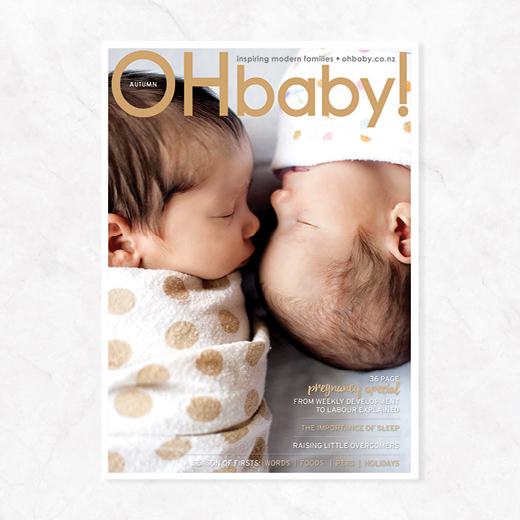Tongue-tie: cause and effect

Tongue-tie seems like the condition every new parent is talking about these days. Lactation consultant and paediatrician Dr Abby Baskett answers some key questions about its effects, treatment and frequency.
Many parents have either heard of tongue-tie or have had this raised as an issue by their LMC, doctor or lactation consultant. In the space of just one generation, awareness of tongue-tie seems to have skyrocketed.
Diagnosing and treating tongue-tie can be crucial to improving breastfeeding issues. Breastfeeding is a complex process and involves many different variables. Efficient, comfortable extraction of milk from the breast depends on the baby’s tongue muscles, the shape of baby’s mouth, baby’s muscle tone and coordination, a mother’s nipple shape, force of the let down, position of the baby at the breast and many other factors. Some babies with an obvious tongue-tie may breastfeed successfully because every other factor is optimal and they are able to compensate. Other babies with a similar tongue-tie may struggle to breastfeed at all until the tongue tie is released.
Say what?
In utero the tongue grows upwards from the floor of the mouth, held in place by connective tissue. The frenulum is the remnant of this early attachment and is a normal part of the human mouth. In tongue-tie, or ankyloglossia as it is known medically, the frenulum is unusually tight or attaches abnormally, restricting movement of the tongue outwards and upwards. There may be a visible white band beneath the tongue and the tongue may form a heart shape when extended out towards the lower lip. Some tongue-ties are less visible and are identified by feeling for a tightness at the base of the tongue and examining for limitation of tongue movement.
To treat, or not to treat
Your doctor, midwife or lactation consultant should spend time observing you feeding and should inspect your nipples and breasts, as well as assessing the baby’s mouth and general health before discussing whether a tongue-tie division will be useful. A tongue-tie that is affecting breastfeeding should be treated as soon as possible, as early treatment allows the tongue muscles to rehabilitate more effectively. Your baby may have a tongue-tie but not need it released, as there may be other more important issues contributing to your breastfeeding problems. If your baby has a visible tongue-tie, but is feeding well and gaining weight with no problems, treatment is probably not necessary.
The procedure
Treatment can be done (by a provider qualified to assess all aspects of breastfeeding) with a simple scissor division using sucrose solution as pain relief. Some providers use lignocaine (anaesthetic) gel. In most newborn babies, the procedure is similarly distressing to a heel prick blood test. Some bleeding is common following the procedure but usually stops with feeding.
Tongue-tie division can also be done using a laser, which takes slightly longer than a scissor division and can be more expensive. Risks include excessive bleeding (your doctor should check if your baby received vitamin K at birth and whether there is any family history of bleeding problems), reattachment or scarring (some babies later need a second procedure). Infection is less common.
After the procedure, some babies may benefit from simple exercises which usually involve encouraging baby to poke out their tongue. Wounds in the mouth heal quickly and there should be little visible scarring after a week or so.
There is little scientific evidence about the long-term implications of tongue-tie, but there are many internet sites discussing it – sites that also publish long lists of conditions supposedly attributed to tongue-tie. There is currently no scientific basis for any of these claims. Tongue-tie, unless it is severe, is unlikely to affect speech.
My advice to anyone concerned about their baby’s feeding is to seek help from their LMC or lactation consultant. If a tongue-tie is the cause of breastfeeding struggles, there's a simple solution that will soon make life easier for mum and baby.
Dr Abby Baskett (FRACP, IBCLC) is a paediatrician and lactation consultant working at Starship Children's Hospital and Kidzhealth in Newmarket. She has a special interest in infant health, particularly feeding issues, and also performs tongue-tie assessment and divisions.

AS FEATURED IN ISSUE 37 OF OHbaby! MAGAZINE. CHECK OUT OTHER ARTICLES IN THIS ISSUE BELOW
Obstetrician or midwife: how & why to choose
- Why do some people choose a midwife and...
The importance of iron in pregnancy
- When it comes to iron in pregnancy, it’s very...
Labour of love: what is labour REALLY like?
- You’re in labour!' It's a loaded statement,...
24 hours in a birth centre
- Sarah Tennant spent 24 hours in a birthing...
A woodland wonderland baby shower
- Create a woodlands wonderland for a cosy baby...
The power and purpose of sleep
- At the end of the day, baby whisperer Dorothy...
Tongue-tie: cause and effect
- Tongue-tie seems like the condition every new...
From 'goo' to 'go: baby's language development
- From "goo" to "go", language development can...
Paws for thought: does your little one need a pet?
- Sarah Tennant weighs in on the ‘shall we get...
Fashion forward: clothes for the cool kids
- Stay cool, calm and collected in black...
Broken but beautiful: one family's story
- Expectant parents often declare their hope is...
How to encourage a growth mindset
- Gretchen Carroll explores how parents can...
Books to warm little hearts
- Warm the hearts and tickle the minds of your...

















